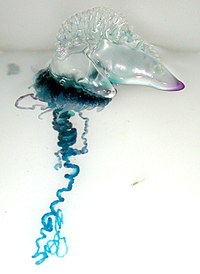
Anthracnose leaf spot pathogens, Colletotrichum fructicola and Colletotrichum cigarro, associated with Eucalyptus seed produced in South Africa
Sign Up to like & getrecommendations! Published in 2021 at "Australasian Plant Pathology"
DOI: 10.1007/s13313-021-00807-y
Abstract: The cost of Eucalyptus seed and adoption of strict phytosanitary regulations in seed trade makes it imperative to monitor the quality and ensure supply of pathogen-free seeds for both forestry regeneration and research. Based on… read more here.
Keywords: fructicola; seed; south africa; produced south ... See more keywords

Resistance of apple leaves to infection by Colletotrichum fructicola acts independently of hypersensitive reaction and PR-1 and PR-10 gene expression
Sign Up to like & getrecommendations! Published in 2018 at "Tropical Plant Pathology"
DOI: 10.1007/s40858-018-0217-1
Abstract: Colletotrichum fructicola is currently one of the most important fungal pathogens affecting apple production in the subtropics. This work was aimed at studying the resistance mechanisms of apple leaves during early stages of pathogen infection.… read more here.
Keywords: fructicola; gene expression; resistance; reaction ... See more keywords

Comparisons between genetic diversity, virulence and colony morphology of Monilinia fructicola and Monilinia laxa isolates
Sign Up to like & getrecommendations! Published in 2020 at "Journal of Plant Pathology"
DOI: 10.1007/s42161-020-00498-2
Abstract: Monilinia fructicola and M. laxa, causing brown rot in stone fruit (Prunus species), were first described from Western Australia in 1997. Our previous work indicated that original invasive isolates of both species were each of… read more here.
Keywords: fructicola; genetic diversity; monilinia; laxa ... See more keywords

Copper nanoparticles against benzimidazole-resistant Monilinia fructicola field isolates.
Sign Up to like & getrecommendations! Published in 2021 at "Pesticide biochemistry and physiology"
DOI: 10.1016/j.pestbp.2021.104796
Abstract: Nano-fungicides are expected to play an important role in future plant disease management. Their unique properties include a broad antimicrobial action, increased effectiveness in lower doses, slower a.i. release and/or enhanced drug delivery and an… read more here.
Keywords: fructicola; copper nanoparticles; monilinia fructicola; action ... See more keywords

Leaf spot caused by Colletotrichum fructicola on star anise (Illicium verum) in China.
Sign Up to like & getrecommendations! Published in 2021 at "Plant disease"
DOI: 10.1094/pdis-04-21-0685-pdn
Abstract: Star anise (Illicium verum) has been cultivated for centuries in southern China, and its fruit is an important seasoning spice, and can be used as a medicine (Wang et al. 2011). It is grown mainly… read more here.
Keywords: fructicola; star anise; leaf spot; anise ... See more keywords

Colletotrichum fructicola Causal agent of Shot-Hole Symptoms on Leaves of Prunus sibirica in China.
Sign Up to like & getrecommendations! Published in 2023 at "Plant disease"
DOI: 10.1094/pdis-04-22-0848-pdn
Abstract: Prunus sibirica L. (Siberian apricot) is a member of the Rosaceae family and an ecologically important tree species in China (Buer et al., 2022). Shot hole symptoms on the leaves were observed in five Siberian apricot… read more here.
Keywords: disease; fructicola; colletotrichum fructicola; shot hole ... See more keywords

First report of leaf spot caused by Colletotrichum fructicola on Dalbergia hupeana in China.
Sign Up to like & getrecommendations! Published in 2021 at "Plant disease"
DOI: 10.1094/pdis-08-21-1842-pdn
Abstract: Dalbergia hupeana is a kind of wood and medicinal tree widely distributed in southern China. Since 2019, a leaf spot disease was observed on the leaves of D. hupeana in Gangxia village, Luoting town in… read more here.
Keywords: leaf spot; three isolates; dalbergia; leaf ... See more keywords

First Report of Colletotrichum fructicola Causing Anthracnose on Glycine max in China.
Sign Up to like & getrecommendations! Published in 2023 at "Plant disease"
DOI: 10.1094/pdis-09-22-2222-pdn
Abstract: Soybean (Glycine max L.) is one of the important oilseed and vegetable crop worldwide and provides the main source of vegetable oil and proteins for human and livestock (Hartman et al. 2011). In October 2021,… read more here.
Keywords: causing anthracnose; fructicola; fructicola causing; glycine max ... See more keywords

First report of Colletotrichum fructicola causing anthracnose on peanut (Arachis hypogaea L.) in China.
Sign Up to like & getrecommendations! Published in 2023 at "Plant disease"
DOI: 10.1094/pdis-10-22-2480-pdn
Abstract: Peanut (Arachis hypogaea L.) is an important cash crop and oil crop around the world. In August 2021, symptoms of leaf spot were found on nearly 50% of peanut plants in the peanut planting base… read more here.
Keywords: fructicola; peanut arachis; peanut; china ... See more keywords

MfOfd1 is crucial for stress responses and virulence in the peach brown rot fungus Monilinia fructicola
Sign Up to like & getrecommendations! Published in 2020 at "Molecular Plant Pathology"
DOI: 10.1111/mpp.12933
Abstract: Abstract Monilinia fructicola is the most widely distributed species among the Monilinia genus in the world, and causes blossom blight, twig canker, and fruit rot on Rosaceae fruits. To date, studies on genomics and pathogenicity… read more here.
Keywords: fructicola; monilinia fructicola; virulence; stress ... See more keywords

Transcriptomic analysis reveals candidate genes regulating development and host interactions of Colletotrichum fructicola
Sign Up to like & getrecommendations! Published in 2018 at "BMC Genomics"
DOI: 10.1186/s12864-018-4934-0
Abstract: BackgroundColletotrichum is a fungal genus in Ascomycota that contain many plant pathogens. Among all Colletotrichum genomes that have been sequenced, C. fructicola contains the largest number of candidate virulence factors, such as plant cell wall degrading… read more here.
Keywords: fructicola; virulence; transcriptomic analysis; candidate virulence ... See more keywords